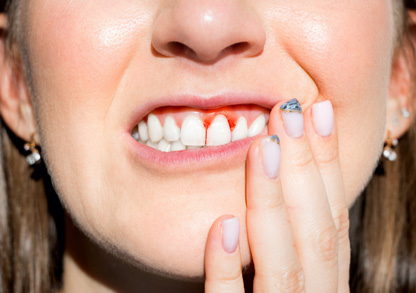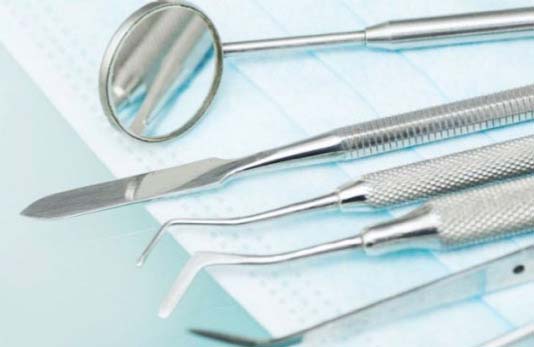Holiday stress and your oral health

The holiday season is usually a time of excitement and cheer. But seasonal activities, family visits and holiday shopping can also lead to a lot of pressure, which can affect your oral health. If you’re feeling tense or anxious, be on the lookout for signs of the following stress-related oral disorders.
Grinding or clenching teeth
Bruxism is the technical term for grinding teeth and clenching jaws. It can result from sleep disorders, an abnormal bite or teeth that are missing or crooked, but it is often caused by stress and anxiety. Signs of bruxism include flat tips of teeth, worn tooth enamel and tongue indentations.
If you think you may have bruxism, visit your dentist for evaluation. He or she can help determine if you need a nighttime mouthguard or other treatment.
Jaw pain
Also referred to as temporomandibular joint disorders (TMJ), jaw pain often occurs when jaw muscles are overused from clenching or grinding teeth, like with bruxism. But even if you aren’t experiencing flat teeth or other signs of bruxism, you may still experience other symptoms of TMJ, such as jaw joint pain or popping and clicking of your jaw.
If you notice these symptoms, check with your dentist to see if TMJ may be the cause.
Gum disease
Emotional factors can play a significant role in the development and severity of adult gum (periodontal) disease. Stress caused by spousal conflict, children, loneliness or work can have an impact on the health of your gums. The greatest risk for gum disease may be caused by financial pain and stress.
The good news? Researchers found that those who deal with financial strain in an active and positive manner had no more risk of severe gum disease than those without money problems. If you’re concerned about the health of your gums, consult your dentist.

Canker sores
Sometimes called mouth ulcers, canker sores generally occur inside the mouth and are not contagious. They often are triggered by trauma — such as from biting your cheek, injuring your gums with a toothbrush or brushing too vigorously — but they may also be triggered by stress.
A study published in Contemporary Clinical Dentistry evaluated the psychological profiles and salivary cortisol levels (which indicate stress) of people with canker sores. Researchers found that anxiety and depression levels were higher in people with canker sores than in the control group.
Maintaining your oral health when stressed
One of the best ways to fight the negative effects of stress is by avoiding stressful situations and opting out of activities when you feel overwhelmed.
Remember to practice good oral hygiene, especially when you’re stressed. You may be tempted to skip dental hygiene, but taking care of your teeth can prevent health problems from getting worse.
Remember to brush twice a day, floss every day and visit the dentist regularly. And try these tension-reducing tips:
- Eat a balanced diet and get plenty of sleep.
- Get physical. Exercise (like yoga or jogging), massage and physical therapy may help.
- Share your feelings with a counselor or trusted family members and friends.
- Find time to relax and meditate.
Still have concerns? Speak with your dentist.
Last updated February 7, 2022
Related articles:
The oral health information on this website is intended for educational purposes only. Always consult a licensed dentist or other qualified health care professional for any questions concerning your oral health.


